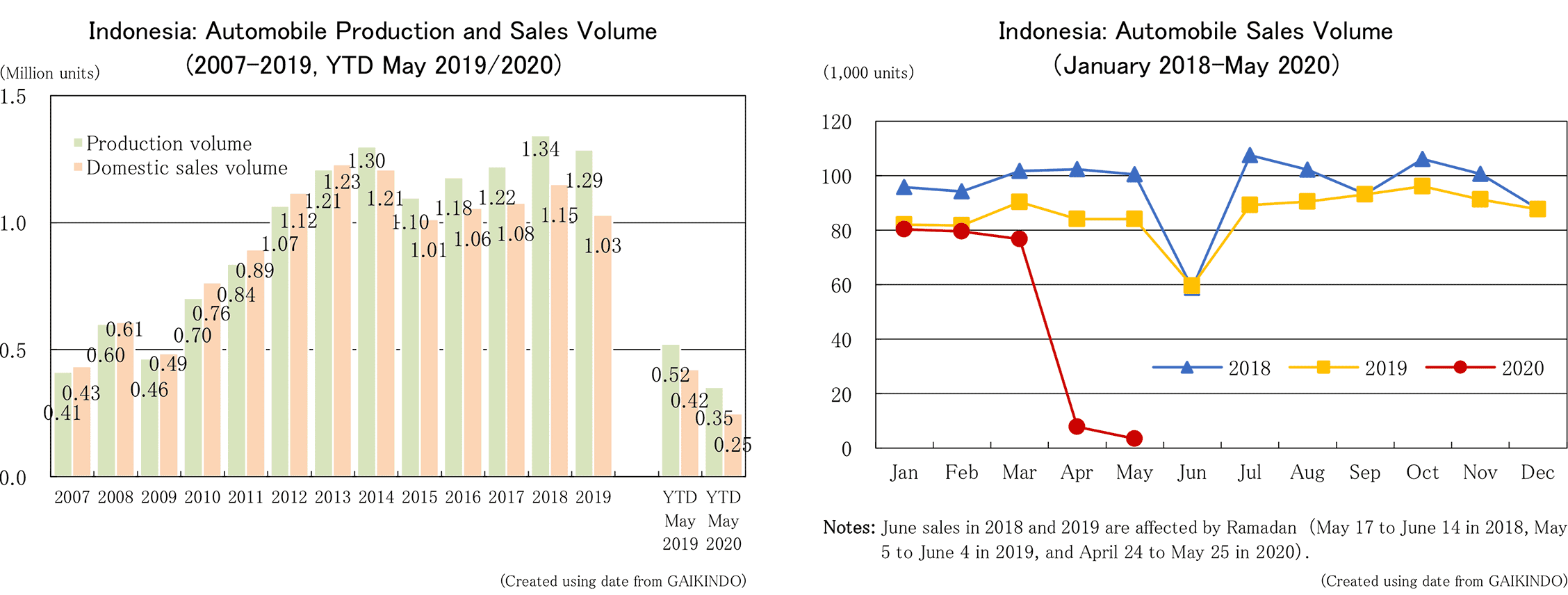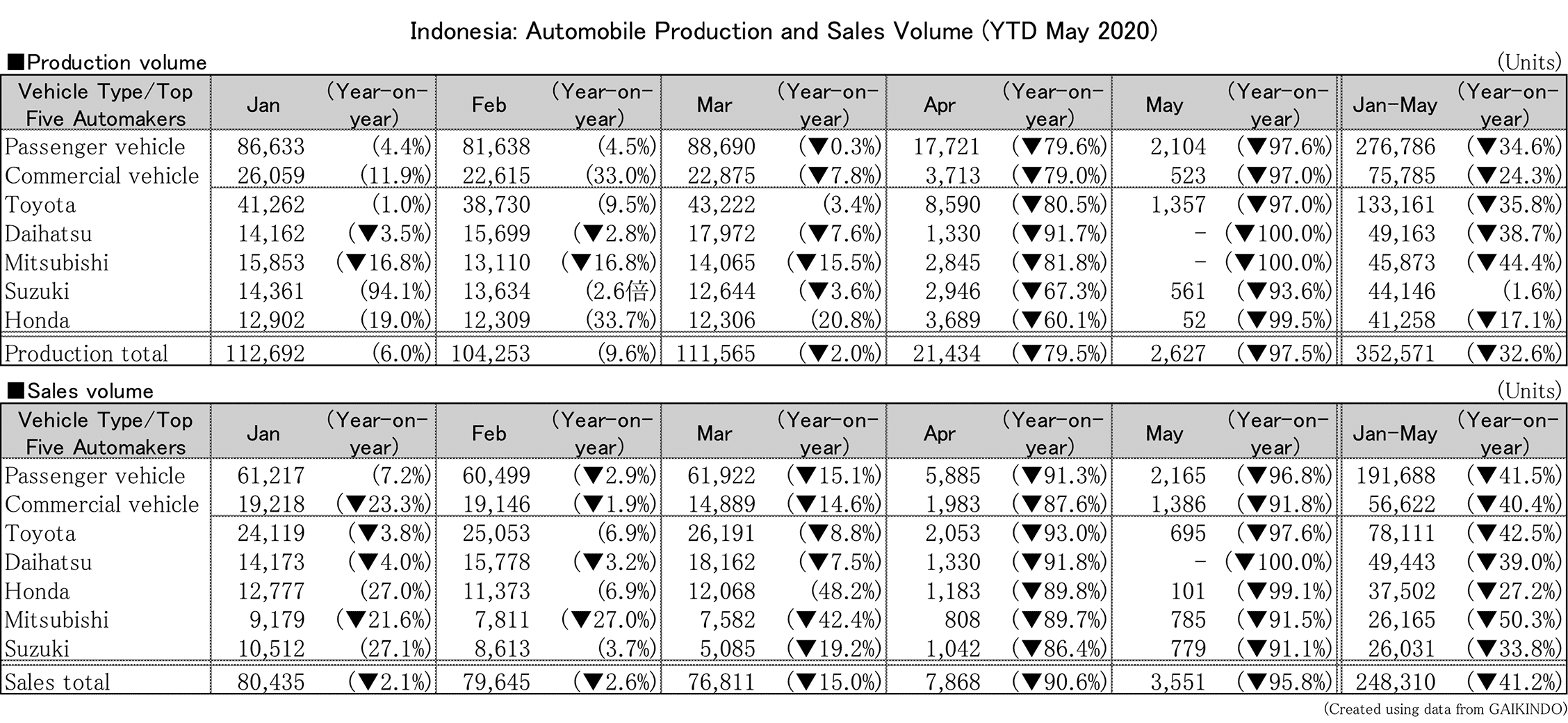AAA weekly
2020-09-14
Copyright FOURIN, Inc. 2025
Impact of the New Coronavirus in Indonesia: Implementation of New Emission Rules Are Postponed Amid the Pandemic
In Indonesia, the government issued a restriction order “2020 Indonesia large-scale social restrictions (PSBB)” on April 3, 2020, in response to the COVID-19 pandemic. During the PSBB period, manufacturers including the automotive industry may continue operation as long as they obtain permission from the Department of Industry. However, automakers decided to halt production for a while in order to establish an infection prevention protocol at facilities and adjust the production volume preparing for the market shrinkage. After the relaxation of PSBB in June 2020, their production has been gradually resumed, but it takes time to recover the production and sales as they used to be. The car sales in Indonesia from January to May 2020 (on a wholesale basis) declined 41.2% year-on-year to 248,000 units. By month, while the March sales fell by 15% year-on-year, the April and May sales dropped by 90% or more after the PSBB restriction issued. The production from January to May 2020 fell by 32.6% year-on-year to 353,000 units. Due to the production halt, the production volume in April dropped by 79.5% to 21,000 units and in May by 97.5% to 2,627 units. Daihatsu and Mitsubishi reported 0 units since they shut down their sites until June.
As of July 2020, although there are no direct support measures to promote car sales, there are several postponements of regulation implementation announced. As for a ban of Over Dimension Overload (ODOL) trucks, the effective date was originally scheduled from January 2022 but put off for a year until January 2023. Regarding the implementation of the Euro 4 emission regulation for diesel vehicles, the enforcement will be postponed until April 2022 due to delays of necessary procedures. It will continue with the Euro 2 standard until then.



